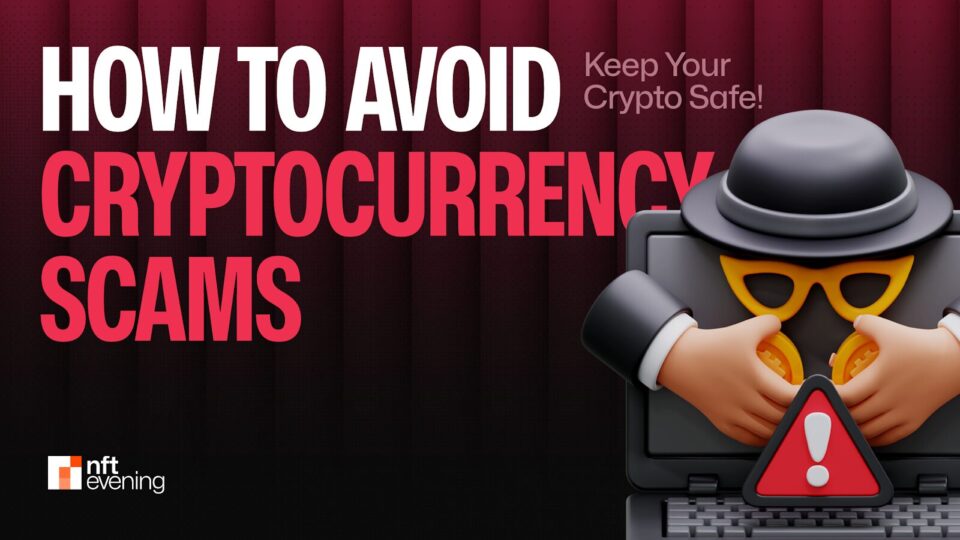Understanding how to avoid crypto scams is essential in a digital age where cryptocurrencies have become mainstream. Scammers exploit unsuspecting users by promising free money, impersonating honest investment managers, or setting up fake crypto platforms. If you are involved in the crypto markets, learning to spot warning signs like guaranteed returns or requests for private keys can protect your investments.
In this guide, we’ll give you all the critical information you need to know about the most common crypto scams. You’ll learn how to spot cryptocurrency scams, how they work, and what you can do to protect your digital assets. By staying current and informed, and always exercising caution, you’ll be able to enjoy crypto without being taken advantage of. Let’s get down to it.
What is a Crypto Scam?
Simply put, crypto scams are the term for any fraudulent scheme that uses deception to steal money, obtain private keys illegally, or other sensitive information from people interested in cryptocurrency investments. Scammers will often make ‘too good to be true’ claims of guaranteed returns. Scammers impersonate government agencies as well, trying to use the illusion of authority to trick users into sending cryptocurrency. Cryptocurrency scams are different from traditional scams in that they can easily propagate on digital platforms and social media, reaching online wallets and potential victims instantly.
Scammers might claim they have discovered a groundbreaking crypto project or use fake endorsements to build credibility. In reality, these investments can be pyramid schemes or Ponzi schemes with no legitimate product or service. Other approaches involve phishing scams, where scammers replicate legitimate platforms or wallets to harvest login details. Because most crypto transactions are irreversible, if you end up getting scammed out of your coins, there is almost zero chance of ever recovering those funds.
Types of Crypto Scams
Fake websites
Fake websites are designed to look like legitimate crypto exchanges or wallet providers. Criminals clone the layout, graphics, and domain name with minor alterations, hoping victims will fail to notice the difference. Once users sign up or input their private keys and passwords, scammers seize control of their accounts. These sites may also prompt individuals to deposit funds that disappear instantly. To stay safe, always double-check the URL, look for SSL certificates, and bookmark trustworthy sites to avoid accidental visits to impostor platforms.
Fake apps
Just like fake websites, fraudulent apps target users on mobile devices. They pose as crypto wallets, portfolio trackers, or exchange tools, tricking people into downloading malware or revealing sensitive details. Some apps even manage to pass minimal reviews on official app stores, though more often they are available via direct download links. Watch for poor spelling, low download counts, and suspicious permission requests. Always rely on official links from recognized crypto exchange websites or well-known developers, do your own research, and read user reviews before installing any cryptocurrency-related app.
Fake celebrity endorsements
Scammers often pretend that high-profile figures, such as famous entrepreneurs or actors, endorse a new token or NFT project. Social media posts or sponsored ads push the message that celebrities are backing these ventures, which boosts their perceived legitimacy. In most cases, the celebrity has no involvement. Verify announcements through official channels, and never trust claims of guaranteed profits from these dubious endorsements. With AI and deepfake technology facilitating these types of cryptocurrency scams, scammers can run the same scam with countless different computer-generated celebs or politicians.
Giveaway scams
Also called “free money” scams, these exploit social media to promise doubled deposits or other easy gains. Victims send cryptocurrency to a wallet address, expecting a bigger return, which never materializes. Genuine promotions rarely require you to transfer funds first. These are often fraudulent initial coin offerings. Avoid falling for urgent calls to action, guaranteed returns, or suspiciously good offers that demand quick compliance.
Blackmail and extortion scams
Claiming they possess embarrassing or incriminating information about their target, scammers demand payment, threatening to release it unless a cryptocurrency payment is made. Sometimes they quote old passwords or personal details, obtained from data breaches, to sound convincing. Do not respond to these tactics or send cryptocurrency, and report extortion attempts to local authorities. Often, it is just a fear-based ploy to steal funds, but in other situations, these can end up being romance scams, where scammers pretend to be in love in order to get someone to send them crypto assets.
Cloud mining scams
In these schemes, fraudsters pose as mining service providers, claiming they are mining cryptocurrency on your behalf for a fee. After you invest, you may see fictitious “profits” in a dashboard, but there is usually no real mining happening. Victims often cannot withdraw funds to a wallet or bank account,



